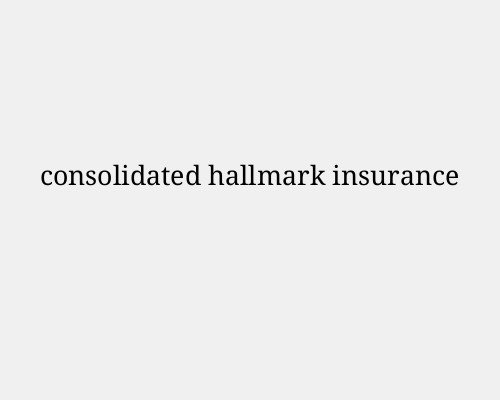The National Health Insurance Scheme (NHIS) in Nigeria is a social health insurance program established to provide accessible and affordable healthcare services to Nigerian citizens. This initiative is a significant step toward achieving Universal Health Coverage (UHC) in the country.
What is the NHIS?
The NHIS was established under Act 35 of 1999 by the Federal Government of Nigeria. It aims to reduce the financial burden of healthcare on citizens by pooling resources and ensuring access to quality health services. The scheme operates as a partnership between the government, healthcare providers, and enrollees.
Objectives of the NHIS
- Access to Healthcare: Provide accessible healthcare to Nigerians, regardless of income level.
- Cost Reduction: Minimize the financial burden of out-of-pocket healthcare expenses.
- Equity in Healthcare: Ensure that all citizens, especially the vulnerable and low-income groups, have access to quality services.
- Resource Mobilization: Encourage resource pooling to fund healthcare services sustainably.
Coverage Under the NHIS
The NHIS offers different programs tailored to meet the healthcare needs of various groups, including:
-
Formal Sector Social Health Insurance Program (FSSHIP):
- For employees in public and private sectors.
- Employers contribute 10% of the employee’s salary, while employees contribute 5%.
-
Informal Sector Social Health Insurance Program:
- Designed for individuals not in formal employment, such as artisans, farmers, and traders.
- Premiums are paid directly by the enrollees.
-
Vulnerable Group Health Insurance Program (VGHIP):
- Focused on providing healthcare for the poor, children under five, pregnant women, and persons with disabilities.
-
Community-Based Health Insurance Scheme (CBHIS):
- Targets rural and semi-urban dwellers.
- Members of the community contribute affordable premiums collectively.
-
Tertiary Institutions Social Health Insurance Program (TISHIP):
- Designed for students in tertiary institutions to ensure they have access to healthcare services.
Benefits of the NHIS
The NHIS provides a range of healthcare services, including:
- Primary care (consultations, diagnosis, and treatments).
- Maternal and child healthcare.
- Routine immunizations.
- Prescription drugs.
- Specialist care upon referral.
- Emergency care services.
Challenges Facing the NHIS
Despite its noble objectives, the NHIS faces several challenges:
- Low Coverage: Only a small percentage of the population is enrolled, leaving many Nigerians uninsured.
- Limited Awareness: Many citizens are unaware of the scheme and its benefits.
- Inefficient Management: Bureaucratic bottlenecks and corruption hinder effective implementation.
- Inadequate Funding: Limited funding has resulted in insufficient resources for quality healthcare delivery.
- Poor Healthcare Infrastructure: Many healthcare facilities lack the equipment and personnel to provide adequate care.
Recent Reforms in the NHIS
The government has taken steps to address these challenges, including:
- The establishment of the National Health Insurance Authority (NHIA) Act 2022, which aims to achieve mandatory health insurance coverage for all Nigerians.
- Increased collaboration with state governments to expand coverage through the State Health Insurance Schemes (SHIS).
- Encouraging private sector participation to improve efficiency and resource mobilization.
How to Enroll in the NHIS
To enroll in the NHIS, individuals or employers can follow these steps:
- Visit the nearest NHIS office or authorized agent.
- Fill out the registration form and provide necessary identification.
- Choose a preferred Health Maintenance Organization (HMO).
- Pay the required premium, depending on the program.
- Receive your NHIS ID card, which grants you access to healthcare services.
Conclusion
The National Health Insurance Scheme in Nigeria is a vital initiative aimed at providing affordable and accessible healthcare to all citizens. While challenges persist, recent reforms and increased government commitment show promise in achieving universal health coverage. By enrolling in the NHIS, Nigerians can enjoy improved access to quality healthcare, reducing the financial burden of medical expenses.
Frequently Asked Questions (FAQs)
1. Is the NHIS mandatory for all Nigerians?
No, the NHIS is currently not mandatory for all Nigerians, but the NHIA Act 2022 aims to achieve universal coverage.
2. What services are covered under the NHIS?
The NHIS covers primary care, specialist care, maternal and child health, immunizations, prescription drugs, and emergency care.
3. How much does it cost to enroll in the NHIS?
Costs vary depending on the program. For the formal sector, it’s a percentage of the employee’s salary, while for others, a flat-rate premium is applicable.
4. Can I change my HMO under the NHIS?
Yes, enrollees can change their HMO after meeting specific guidelines set by the NHIS.
5. What is the role of HMOs in the NHIS?
HMOs act as intermediaries between enrollees and healthcare providers, ensuring services are delivered efficiently.

